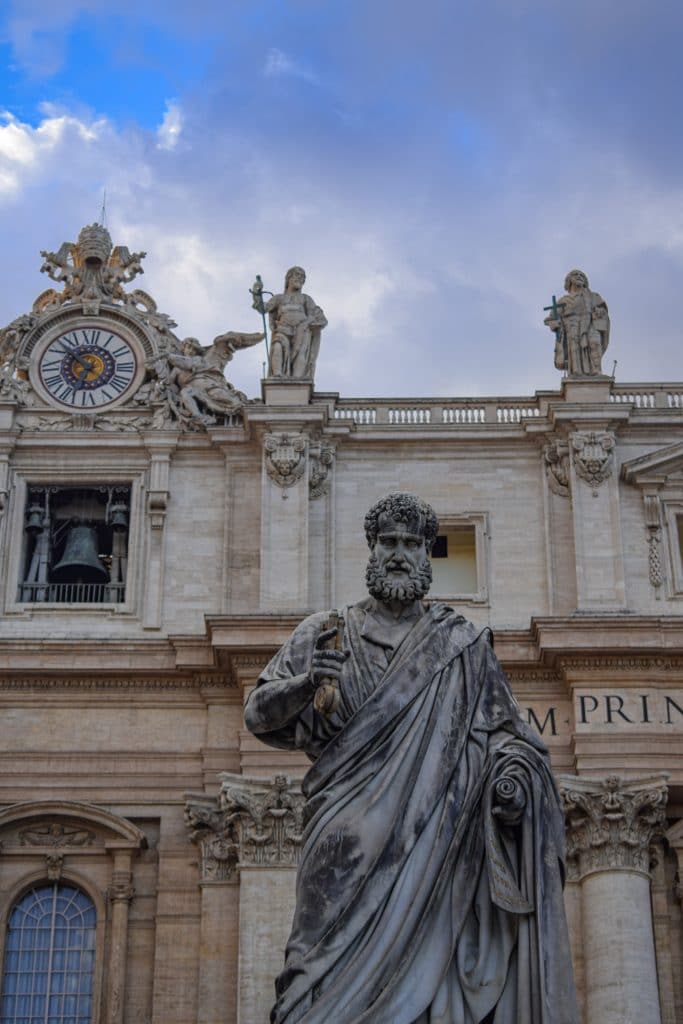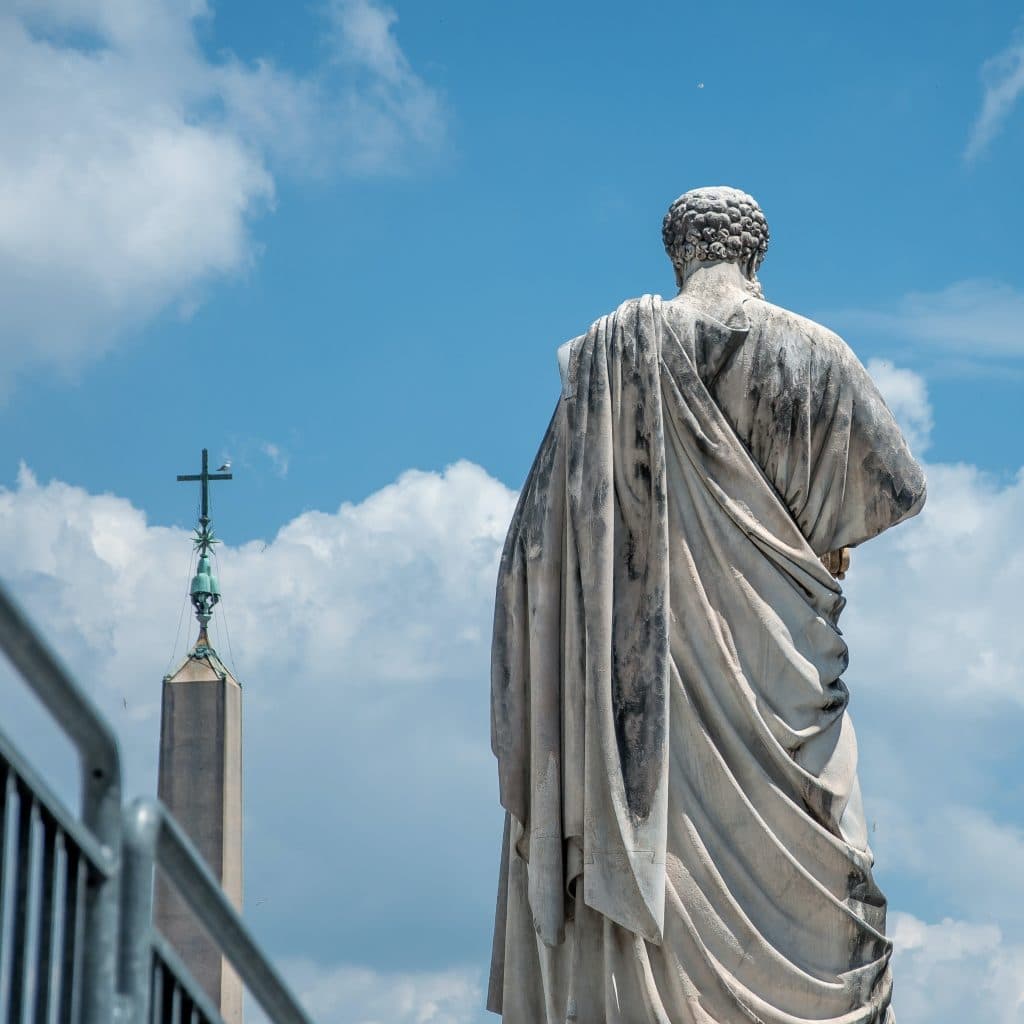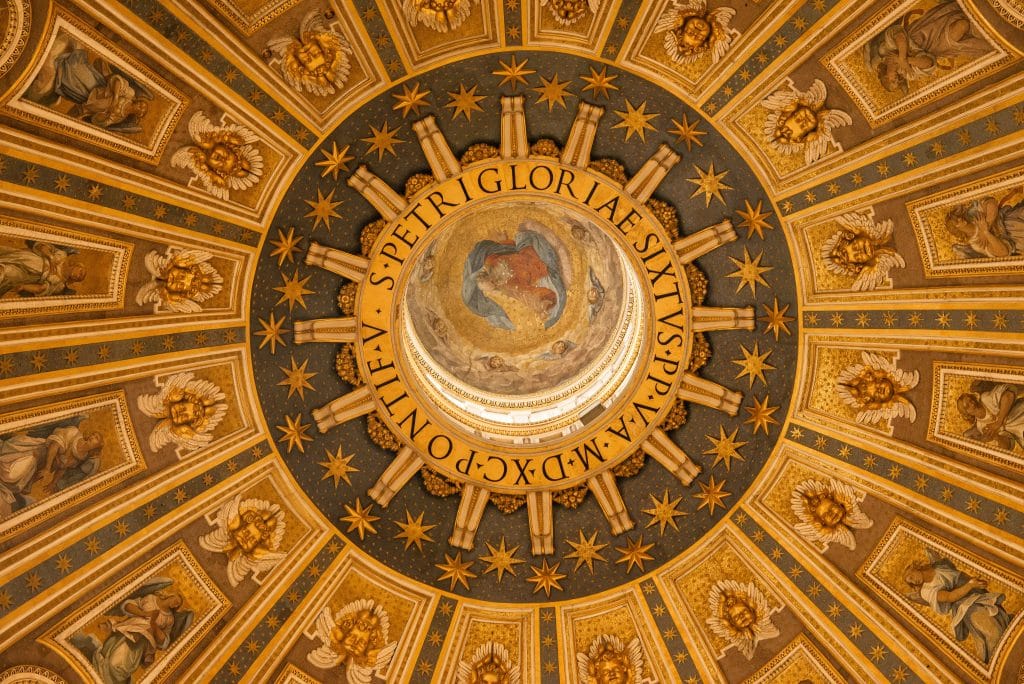“Get behind me, Satan!”
Can you imagine if Jesus—the Messiah, the person who came to redeem humanity—said those words to you? When we read Mark 8:31-38, that is exactly what he said to his lead disciple, Peter.
As you might recall, Peter’s name is actually Simon. Jesus renamed him Peter, or in the Greek, Petros, a word based on the word petra which means “rock.” Why this name? In Matthew 16:13-20, Jesus tells Simon that he is the rock on which Jesus will build his church.
Jesus is setting Peter up to be a Church Rock Star.
I like to think that I love God. But I have to ask: do my actions really reflect my intentions?
Peter is going to exponentially grow the church after Jesus actually fulfills Mark 8:31. Peter will literally raise people from the dead. He will heal in miraculous ways, preach the gospel, and lead the church through unspeakable trials. Yet in Mark 8:33, Jesus speaks to him as if he is evil incarnate.
And, when we read this passage, it oddly appears as if Peter was simply trying to be loyal. Yes, Peter has the ability to put his foot in his mouth at times, but every person I know has been guilty of that at one time or another. It isn’t a matter of ill intent; it is usually just a matter of ignorance.
But in this particular matter, Peter is actually defending Jesus. Jesus has just openly proclaimed that he “must undergo great suffering, and be rejected by the elders, the chief priests, and the scribes, and be killed, and after three days rise again.” Hearing this, Peter has to be thinking, “Wait, what?!” From Peter’s standpoint, the Messiah was going to overthrow the Roman occupation and put God’s people back in their proper place in the world. And Peter believes Jesus is the Messiah. As far as he is concerned, no one is going to stop the Messiah’s coming revolution.

So he does what one does when one disagrees with a friend in public: you don’t call them out in front of everyone, but pull them aside and say, “Wait. I hear what you’re saying, but this doesn’t seem right. I mean, the point can’t be for you to die in the process, right?
To be fair, Peter probably wasn’t the only person within earshot of Jesus thinking this. Remember that all these disciples had given up their security and relative comfort, left behind generational jobs and wealth…to follow Jesus. Who now, from their perspective, seemed to be on a one-way mission that there is no coming back from.
But before Peter can get too far into articulating his position, Jesus—knowing the dynamics around him—breaks the discussion out of this private side conversation, turning Peter’s attempt at discretion into a public spectacle by intentionally looking at his disciples and rebuking the obvious leader of the bunch, saying, “Get behind me, Satan! For you are setting your mind not on divine things, but on human things.”
Now, I can’t help, every time I read that passage, to think, “If Jesus can say this to Peter—an Apostle—how much more could he say it to us?” Here is Peter—who loves and cherishes Jesus, who is willing to fight for Jesus and wanting to protect Jesus, who is effectively leaving everything behind to follow Jesus—and Jesus is telling him, “This is not about what you want. It’s about what God wants.”
Jesus says: “For you are setting your mind not on divine things, but on human things.”
How often could that be said about us? How often do we focus on human things instead of the things of God? I mean, we often can barely stick to doing things like diets or exercising, much less reading our Bibles regularly, tithing, praying, or selflessly caring for others, and much less actively talking about our faith with others. If I asked you how much time you intentionally set aside each day to spend with God, what would you say? My best answer is, probably not enough.
And if I try to compare myself to Peter? There’s just no comparison. And this is the guy that Jesus is telling “Get behind me, Satan”?
This also means that anything that we do that isn’t focused on divine things makes us God’s adversary.
Jesus isn’t about to mince his words. After saying these things, he then doubles down by gathering the crowd, and it’s like he looks at Peter and says, “You think this is loyalty? Trying to protect me? That is nothing. If you want to follow me, you have to be prepared to go all in. You need to be willing to use everything at your disposal for the rescue mission to save humanity.”
But, if we are being honest, this often isn’t what church is about today. So much of church has become about what we want. About seeing our preferences enacted. About entitlement. Does the church do this or that ritual the way I want it? Is worship the exact way that we prefer? Are the service times convenient to fit around my brunch schedule?

So often, the modern church has nothing to do with our devotion. If we are being honest, it is just about our earthly desires being projected on to the church.
We love to champion the words of Jesus when those words suit our purposes, but rarely do we want to venture into actually upholding things like the Beatitudes. We want the church to be generous, but rarely are we willing to put our money where our mouth is. We want the church to reach out to others, but only if it’s in the specific way that we want the church to reach out to others. We want the reward, but rarely do we want to put in the work.
And Jesus is effectively saying, “Look: you can have good intentions, like Peter, and still be pursuing the wrong things. What needs to be done has a real cost associated to it. Don’t cheapen it.”
This is where I think we need to pause a second and remember how many people have given their lives to give us the privilege of being the Church. Generations of saints before us have given everything so that we can continue to share the Good News of Jesus. To allow people to know that there is more to existence than what they see at first glance. To walk with people so that they might catch a glimpse of the reality of God’s way of being, and how that can help them to live not just more full lives, but eternally rewarding ones.
It is a privilege that we get the opportunity to be with God, serve others, give generously, and be community with one another. To minimize the honor and responsibility that comes with that sacred privilege is to cheapen God’s grace. It is to cheapen the sacrifice of Jesus, and later, Peter, and all of those disciples who would take Jesus’ words seriously.
Many centuries later, another saint—who understood the importance of not cheapening God’s grace—was German, Lutheran pastor Dietrich Bonhoeffer. Bonhoeffer, who lived not even a hundred years ago, was faced with Nazi injustices and was morally compelled to decide what he would choose: the world and his safety, or justice and Christ at his peril. Bonhoeffer ultimately lost his life because he was not willing to cheapen the grace of Christ which he knew to be costly.
In 1937, Bonhoeffer wrote the following:
“Cheap grace means… The sacraments, the forgiveness of sin, and the consolations of religion are thrown away at cut prices. Grace is represented as the Church’s inexhaustible treasury, from which she showers blessings with generous hands, without asking questions or fixing limits. Grace without price; grace without cost! The essence of grace, we suppose, is that the account has been paid in advance; and, because it has been paid, everything can be had for nothing. Since the cost was infinite, the possibilities of using and spending it are infinite. What would grace be if it were not cheap?…
Cheap grace is the preaching of forgiveness without requiring repentance, baptism without church discipline, Communion without confession, absolution without personal confession. Cheap grace is grace without discipleship, grace without the cross, grace without Jesus Christ, living and incarnate.
Costly grace is the treasure hidden in the field; for the sake of it a person will go and sell all that they have. It is the pearl of great price to buy which the merchant will sell all his goods. It is the kingly rule of Christ, for whose sake a person will pluck out the eye which causes them to stumble; it is the call of Jesus Christ at which the disciple leaves his nets and follows him.
Costly grace is the gospel which must be sought again and again, the gift which must be asked for, the door at which a person must knock.
Such grace is costly because it calls us to follow, and it is grace because it calls us to follow Jesus Christ. It is costly because it costs a person their life, and it is grace because it gives a person their only true life. It is costly because it condemns sin, and grace because it justifies the sinner. Above all, it is costly because it cost God the life of his Son: “ye were bought at a price,” and what has cost God much cannot be cheap for us. Above all, it is grace because God did not reckon his Son too dear a price to pay for our life, but delivered him up for us. Costly grace is the Incarnation of God.”
I don’t know about you, but I can’t read those words of Bonhoeffer’s without wondering if I have really done enough with what God has graced me with.
I like to think that I love God. But I have to ask, do my actions really reflect my intentions?

Or, to quote the old adage, is the road to hell just paved with my good intentions?
What oddly comforts me in the Mark 8 story about Peter is that he would go on to live his whole life with Jesus’s words, “Get behind me, Satan,” lingering in his memory. I have to think that, given his love and devotion for Jesus, those words drove Peter every day of his life to want to exude his love for Christ in meaningful ways. I think that because I would never want the people I love to, even for a second, consider that I don’t truly love them.
But maybe the most comforting part of this story for me is when I remember back to when Jesus renames Simon, Peter. Jesus says in that moment (in Matthew 16:13-20), “I tell you, you are Peter, and on this rock I will build my church, and the gates of hell shall not prevail against it.”
In a very real sense, Peter is the foundation of the Church in Jesus, an entity that evil cannot overcome. Which means that even though there may have been glimpses of Peter’s personality that lent themselves toward being God’s adversary—even if unknowingly—at the end of the day, in Jesus, Peter would not be consumed by evil.
This is Jesus’ promise to us as well. With faith in him—even with all of our limitations, even when we misstep—we will still be rescued from that which would otherwise destroy us.
It’s a humbling promise. It’s a costly grace. But it is one that demonstrates how dearly we are cherished by God.
I pray that we may have the faithfulness equal to or beyond those saints who have gone before us to live into the responsibilities of Christ that lie ahead.
Reality Changing Observations:
1. What “costs” are hardest to live with as a Christian in our place and time? Why are they so difficult for us?
2. How does the disciples’ (and, here, Peter’s) fallible humanity mean so much to us as we read the Gospels millennia later?
3. What “costly” element of life can you give to God this week?





